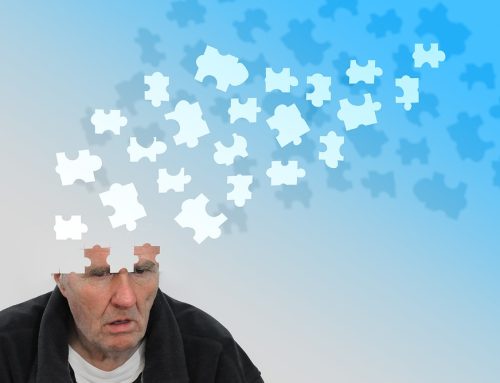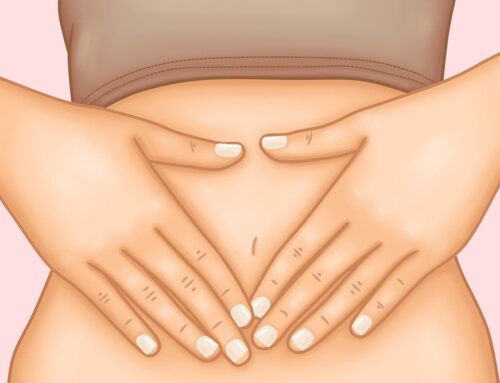Sleep is such an integral part of life that most of us don’t give it a second thought.
That is until you’re not getting enough of it. An occasional poor night’s sleep isn’t unusual, but when chronic sleep deprivation enters the picture, your mental wellness can take a nosedive.
If you imagine your health as a house, sleep would be the foundation that supports everything about the basic structure. How you think, feel, and respond are all heavily influenced and dependent on the quality and length of your sleep cycle.
During sleep, the body doesn’t shut off. The brain’s cleansing mechanism, called the glymphatic system, has a 90 percent increase in activity during the sleep cycle. Brain cells shrink so that spinal fluid can be flushed through the interstitial spaces throughout the brain. This process removes waste that’s created throughout the day. Lack of sleep prevents this process from taking place, leaving your communication pathways clogged.
Sleep also affects emotional regulation. The two major players in your emotional processing and stability change how they function during sleep deprivation. The amygdala, where emotions are processed, becomes hypersensitive and over reactive to negative experiences.
Normally, these emotional responses are tempered by the prefrontal cortex, the brain’s logic center. But, without sleep, this part of the brain essentially goes dormant and emotions fluctuate sporadically. The increased irritability, aggression, and anxiety associated with sleep deprivation are all linked to these changes in the brain.
Your mental wellness can be further damaged by the physical effects of sleep loss. Inadequate sleep causes the body to release extra hunger hormone while dropping levels of satiety hormones. The increase in hunger isn’t tempered by a full feeling until well after you’ve overeaten.
Food cravings change too. The brain’s reward center gets overstimulated by high fat, sugary foods. Saying no to those cookies, candies, and chips gets infinitely harder when you’re tired. For that reason, obesity, diabetes, and high blood pressure are often connected with poor sleep. Your self-esteem, confidence, and health all affect your mental wellness and lack of sleep can certainly cut into how you feel about yourself.
That may sound like a lot of bad news, but the length and quality of your sleep cycle are conditioned to respond to your habits and behavior patterns. Lifestyle changes both big and small can boost your mental wellness.
Healthy sleep habits are built one day at a time, and they begin the minute you open your eyes. A consistent sleep/wake schedule is essential to better sleep. Your circadian rhythms, a series of biological and physiological processes that control patterns of behavior, rely on the Earth’s day/night light cycle to regulate the release of sleep hormones. But, they also respond to your behavioral patterns.
If you go to bed at 9 pm every night, the brain automatically adjusts the release of sleep hormones to follow your schedule. If you wake up at 6 am every morning, your body adjusts the beginning of the wake cycle accordingly. The more consistent you are, the better your body adjusts and responds to the hormonal changes that control your sleep cycle.
Your body also needs to be able to fully relax to fall and stay asleep, and the conditions in your bedroom can make or break your comfort. Old, saggy mattresses are a common culprit of nighttime discomfort. However, even a new mattress can cause problems if it doesn’t support your preferred sleep position and weight.
The bedroom should also be completely dark to prevent any light, both natural or artificial, from suppressing sleep hormones. Turn down the thermostat to a cool 60 to 68 degrees, and block out as much sound as possible. If you live on a noisy street, you may need to invest in a white noise machine or download a white noise app.
You may have individual comfort needs that need to be considered too. Conditions like anxiety, PTSD, and ADHD may benefit from a weighted blanket while someone with scoliosis or arthritis may benefit from a memory foam mattress topper. The key is to customize comfort to your unique needs.
You can also use a regular bedtime routine to further enhance the quality of your sleep. Bedtime routines help you transition from awake and alert to calm and relaxed. For those struggling with stress or anxiety, that transition time can shorten the amount of time it takes to fall asleep. Activities can include anything that relaxes your mind and/or body like a warm bath, reading a book, or listening to quiet music. The routine will be most effective if you start it at the same time each day and perform the activities in the same order.
Sleep is a foundational part of your mental health and wellness. By making it a priority, you’re putting your health first. With time, new habits will make sure that good sleep is a normal part of your life. A strong health foundation lets you build an active lifestyle with mental and physical energy to accomplish all of your goals.









